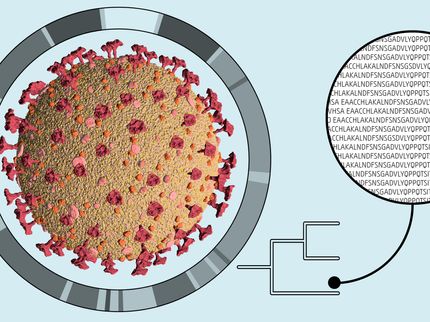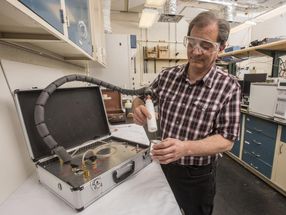Genetic research identifies novel pathway leading to myocardial infarction
Starting with a severely affected family, a research research team led by Jeanette Erdmann, Christian Hengstenberg and Heribert Schunkert (Institut für Integrative und Experimentelle Genomik, University of Lübeck and Deutsches Herzzentrum München) identified a novel mechanism leading to myocardial infarction. Specifically, the scientists detected two mutations that jointly blocked nitric oxide signalling in platelets leading to accelerated thrombus formation. Another variant of the same enzyme, affecting a large proportion of the population, was also found to affect coronary risk, albeit to a much lesser extend. The project was funded by the DZHK (Deutsches Zentrum für Herz-Kreislauf-Forschung e. V.). The work was published on November 10th in the prestigious journal Nature.
Coronary artery disease and its sequelae myocardial infarction are among the leading causes of death worldwide. In addition to an unhealthy lifestyle, it is known for a long time that familial or inherited factors contribute to the development of these diseases. Now, an international team of 42 researchers from 36 institutions and 7 countries unravelled a novel cause of myocardial infarction in an extraordinary large German family comprising more than 23 affected family members.
“Sometimes coronary artery disease clusters in families in an apparently Mendelian pattern. Yet, the precise nature for such strong genetic susceptibility remains most often enigmatic“, explains Jeanette Erdmann from the University of Lübeck, Germany.
Next-generation sequencing made it feasible to pinpoint disease-causing mutations.
“In our case the surprising finding was that two mutations affecting the same enzyme came together in a family with an extraordinary high myocardial infarction risk“ adds Heribert Schunkert from the Deutsches Herzzentrum Munich.
Jeanette Erdmann specifies: „We identified two private mutations in the functionally related genes, GUCY1A3 and CCT7. Extensive follow-up studies revealed that these genes encode proteins that work together to mediate effects following nitric oxide stimulation which, among other actions, inhibit platelet activation“.
Moreover, the team shows that this pathway is not only relevant in rare families but plays also a role in the general population.
“Overall, these data suggest a link between impaired nitric oxide signalling and myocardial infarction risk“ summarizes Christian Hengstenberg from the Deutsches Herzzentrum München.
Jeanette Erdmann adds, “Furthermore, we show that it is important not only to search for one disease-causing mutation in families, but to look for two, or even three potentially interacting mutations to explain clustering of a disease in families”.
Organizations
Other news from the department science

Get the life science industry in your inbox
From now on, don't miss a thing: Our newsletter for biotechnology, pharma and life sciences brings you up to date every Tuesday and Thursday. The latest industry news, product highlights and innovations - compact and easy to understand in your inbox. Researched by us so you don't have to.





















































